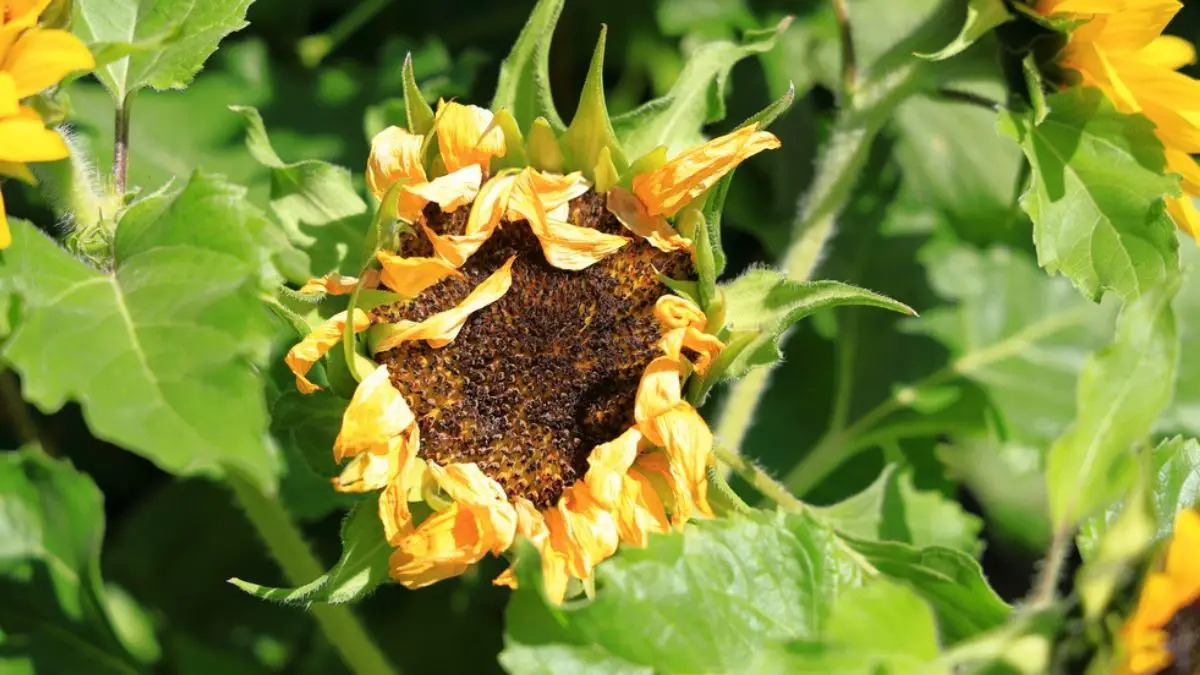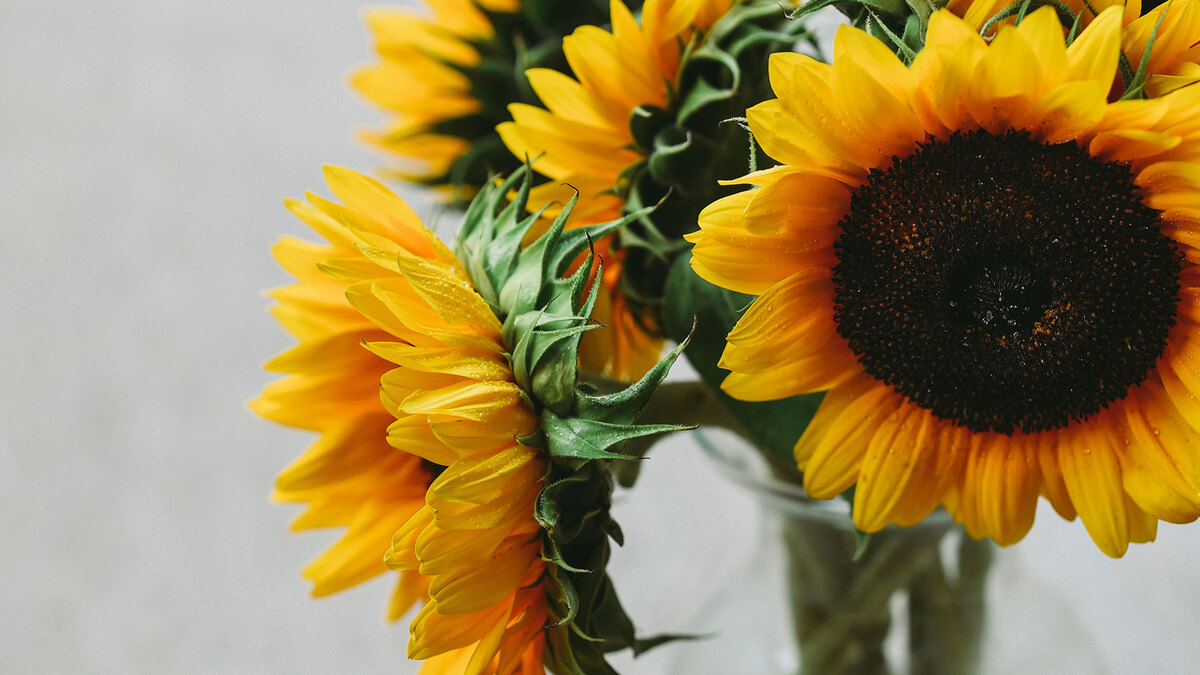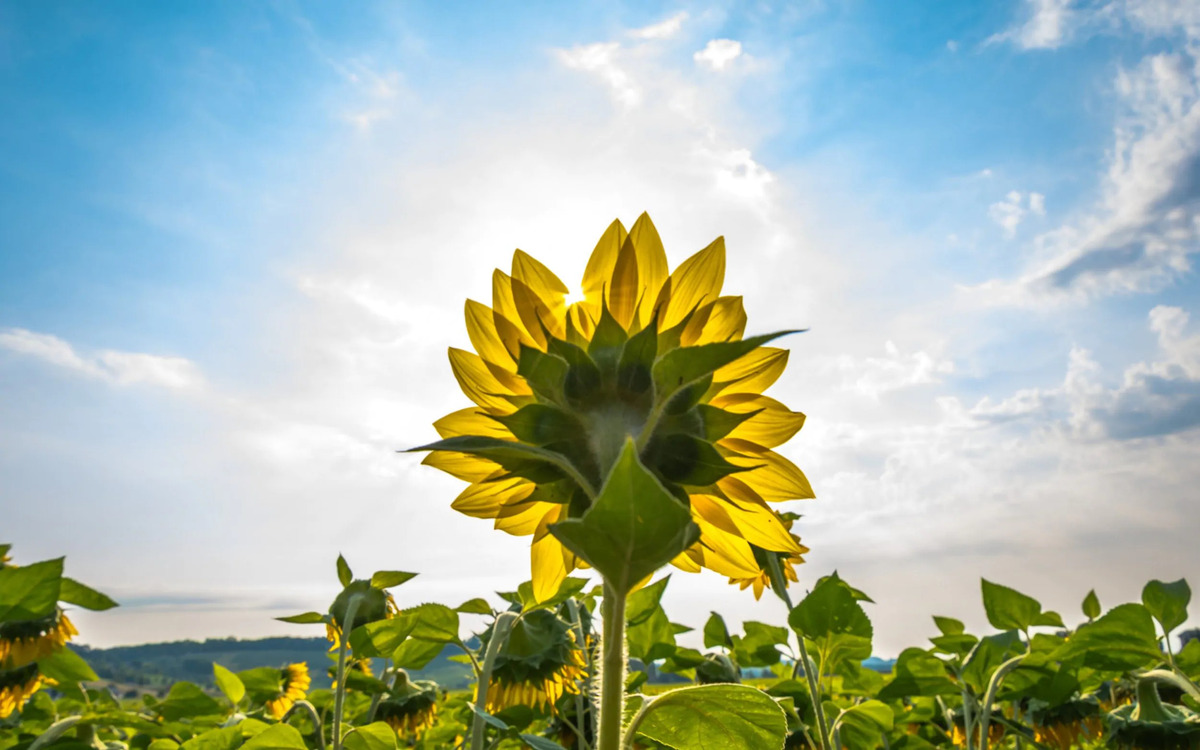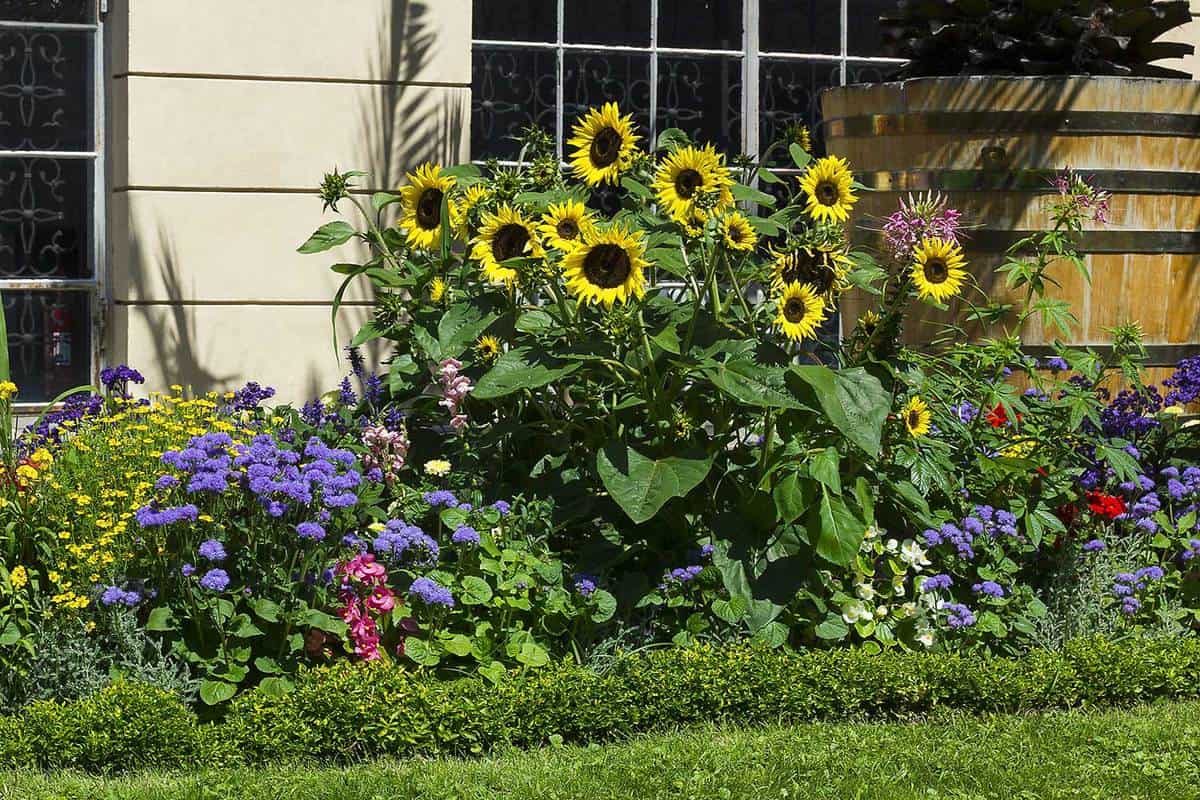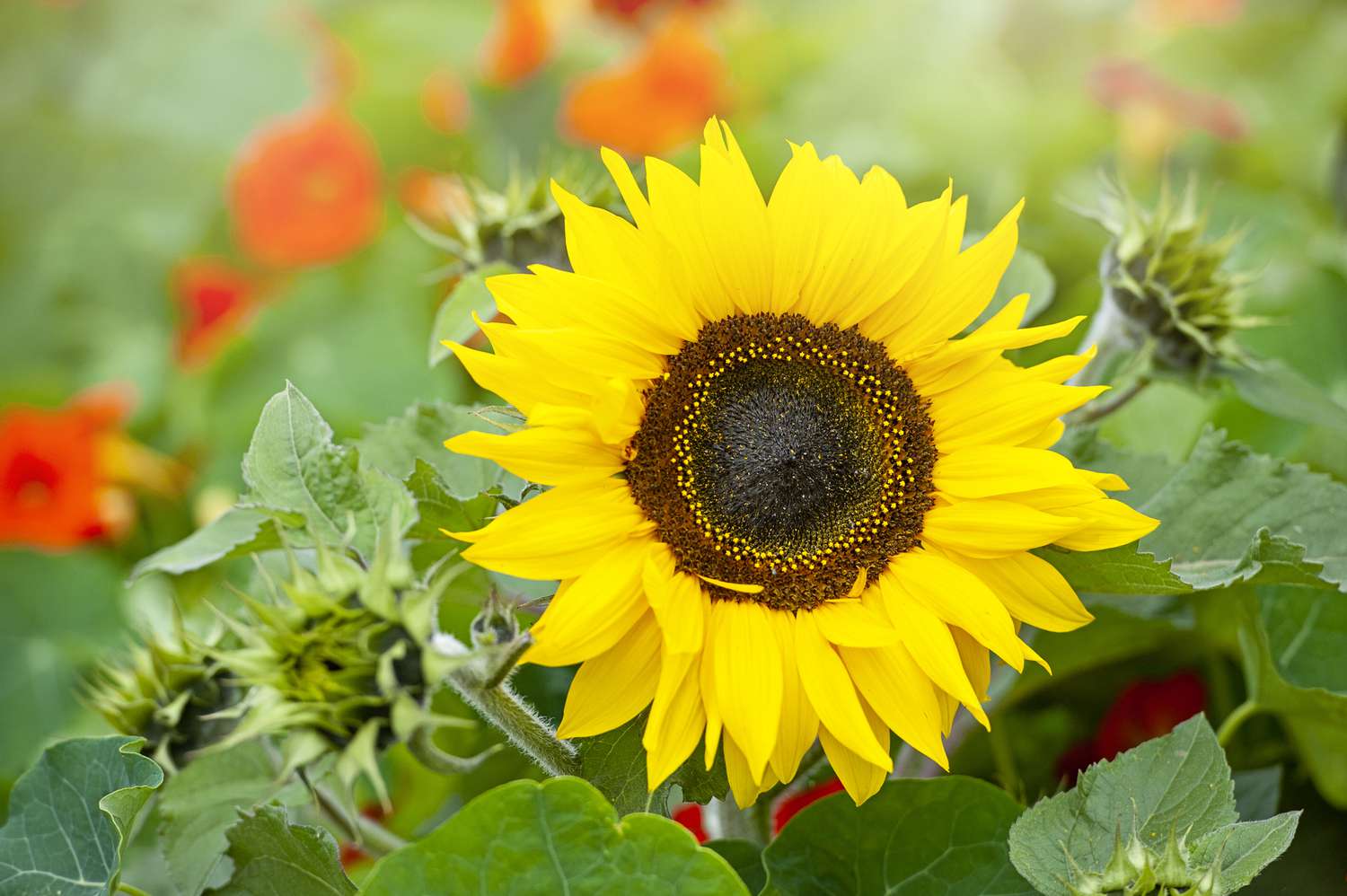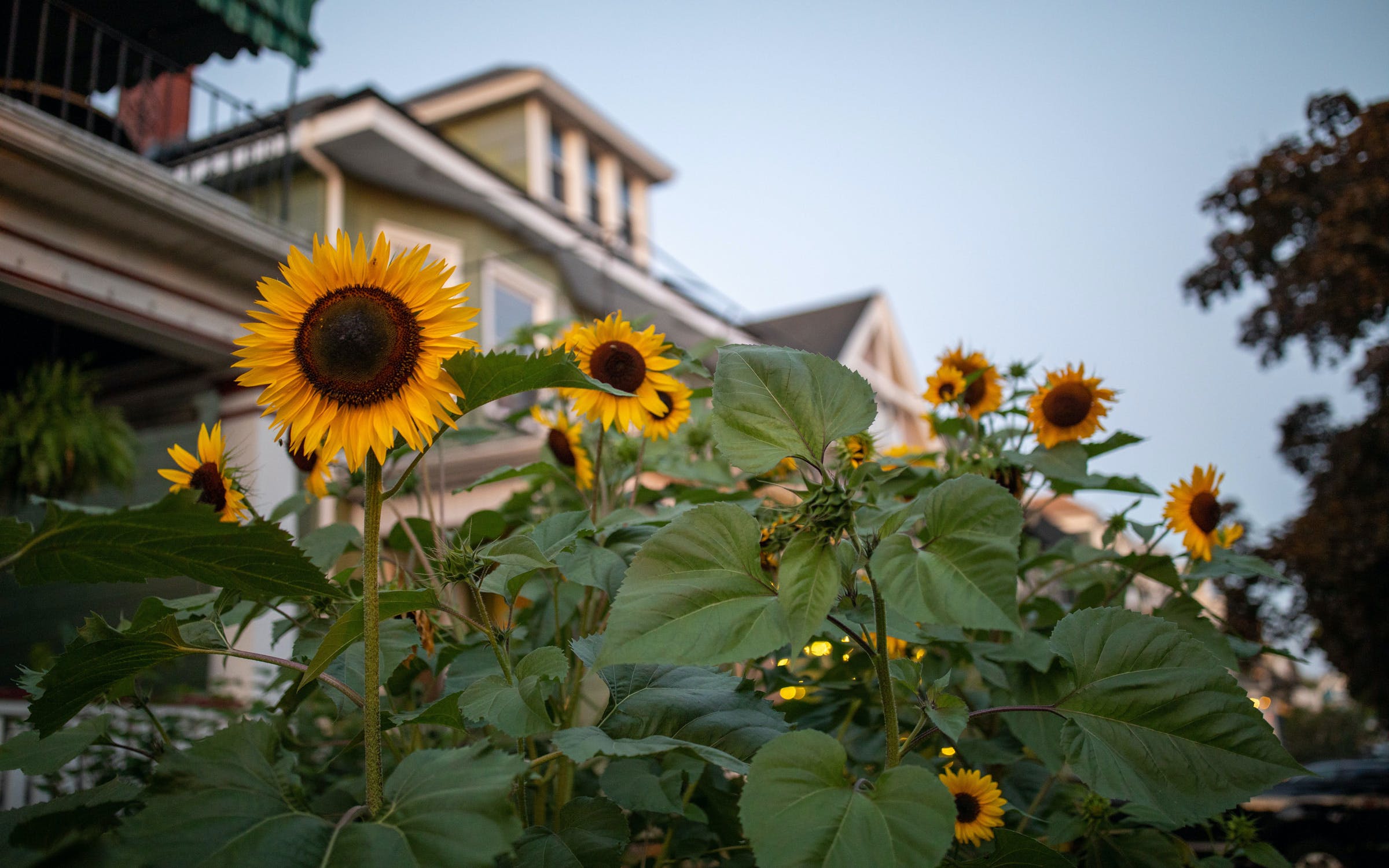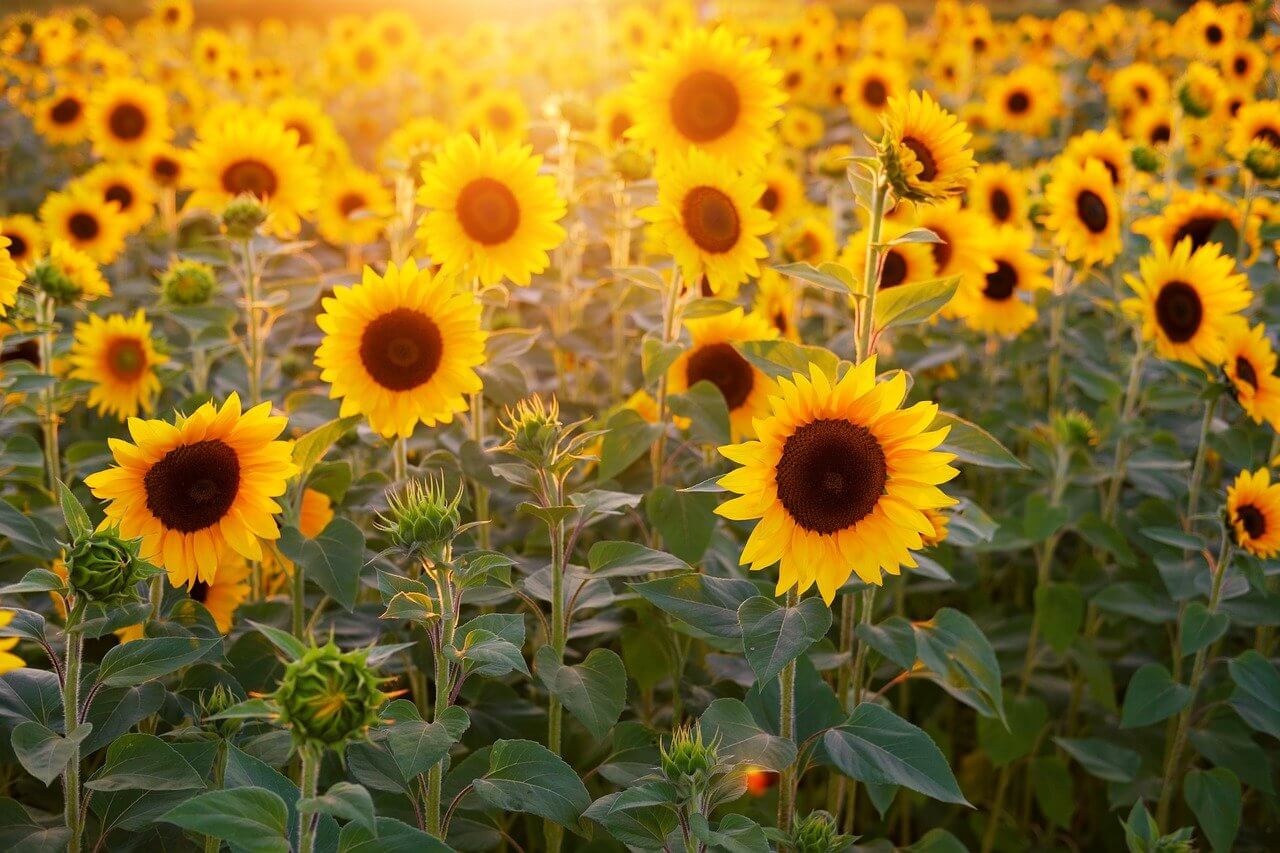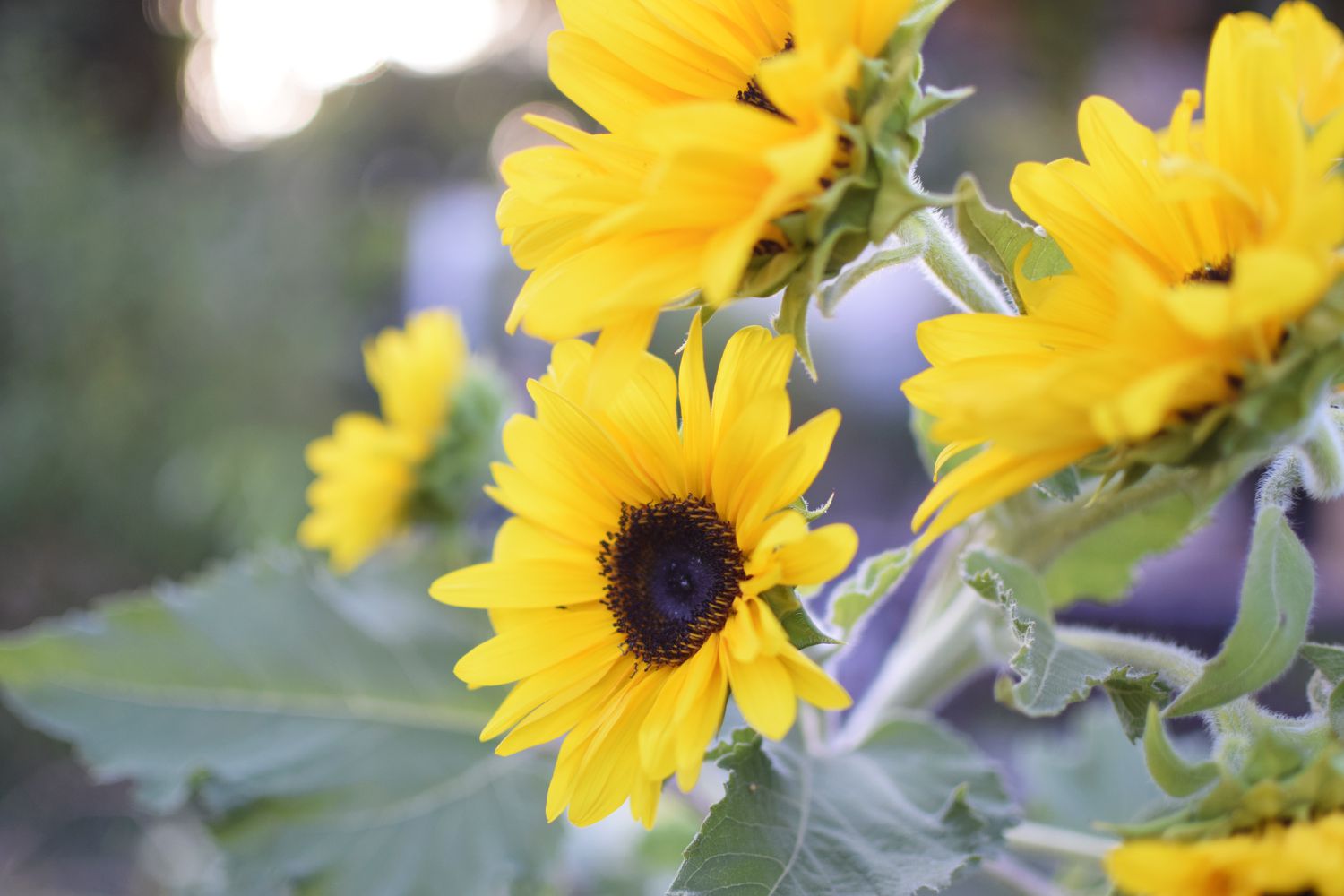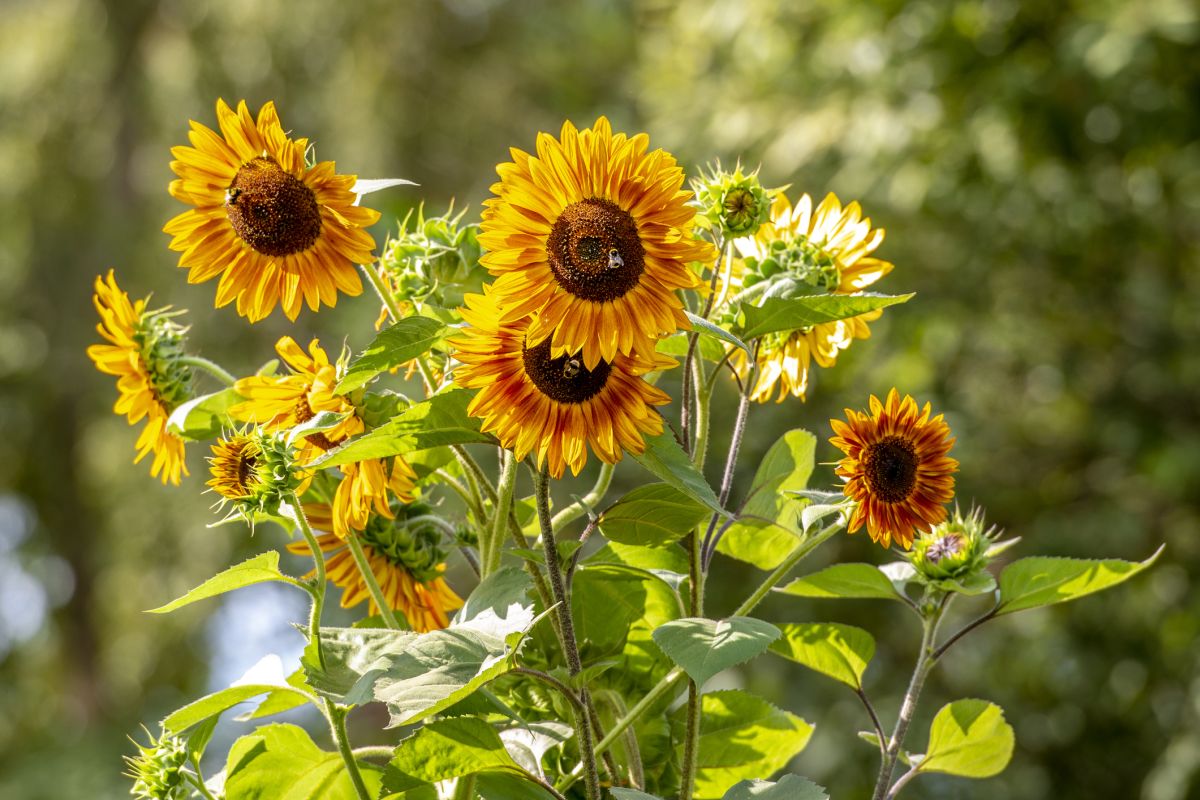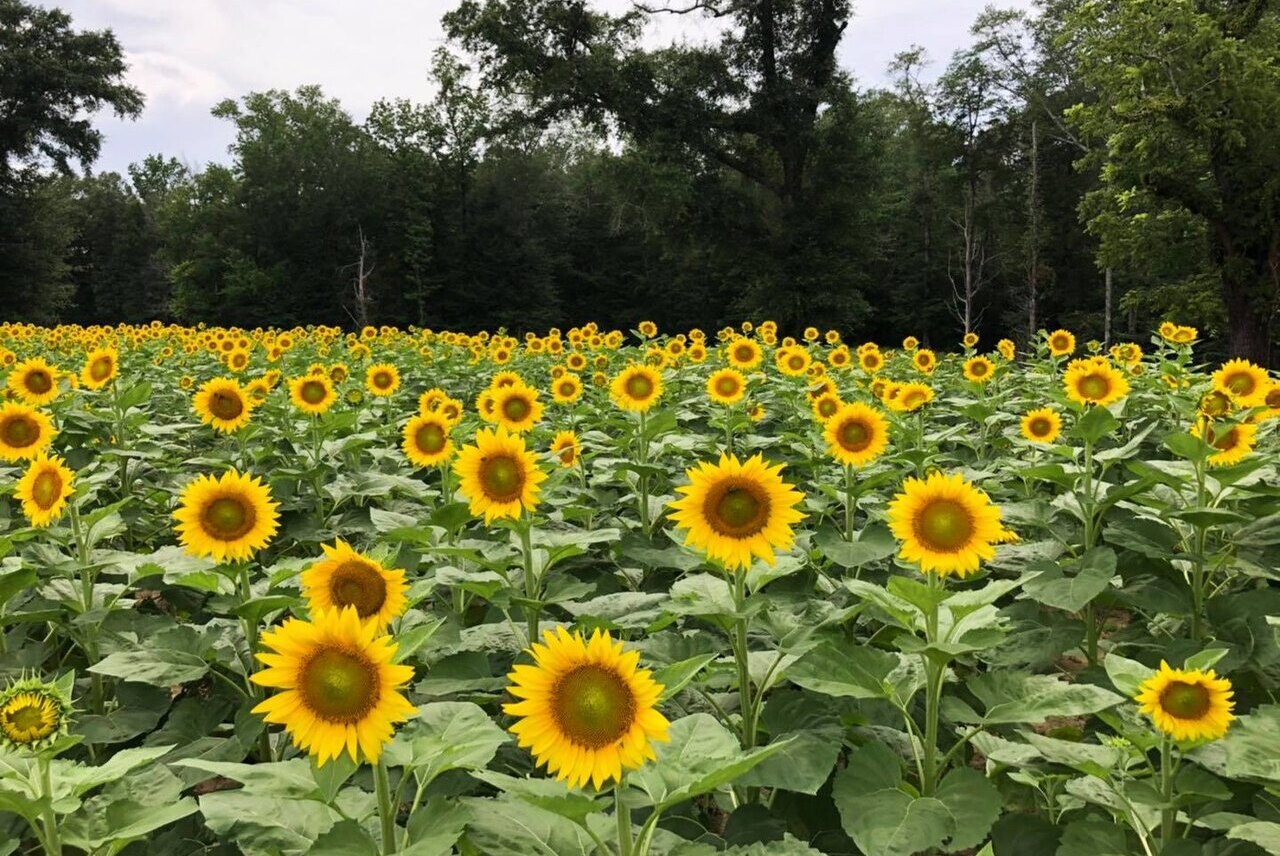Home>Types of Gardening>Ornamental Gardening>Why Plant Sunflowers
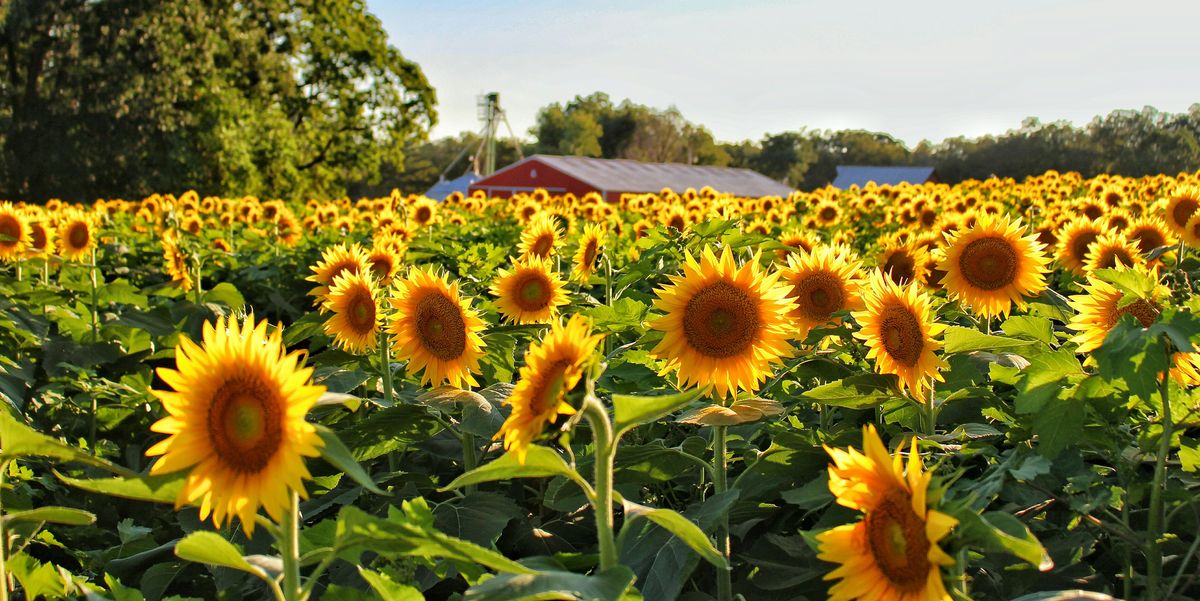

Ornamental Gardening
Why Plant Sunflowers
Modified: February 10, 2024
Discover the beauty of ornamental gardening with sunflowers. Learn why planting sunflowers can enhance your garden and bring joy throughout the season.
(Many of the links in this article redirect to a specific reviewed product. Your purchase of these products through affiliate links helps to generate commission for Chicagolandgardening.com, at no extra cost. Learn more)
Table of Contents
- Introduction
- Benefits of Planting Sunflowers
- Environmental Impact of Sunflowers
- Sunflowers as a Food Source for Wildlife
- Sunflowers as Pollinator Support
- Sunflowers for Soil Improvement
- Sunflowers for Aesthetics and Decorative Purposes
- Sunflowers for Educational Purposes
- Sunflowers as a Source of Seeds and Oil
- Conclusion
Introduction
Welcome to the world of ornamental gardening! If you’re looking to add a touch of beauty and charm to your landscape, planting sunflowers is certainly a delightful choice. These vibrant and versatile flowers have captivated gardeners and nature enthusiasts for centuries. In this article, we will explore the myriad benefits of planting sunflowers, from their environmental impact to their aesthetic appeal and educational value.
Sunflowers, scientifically known as Helianthus annuus, are native to North America and have become a beloved addition to gardens around the world. Their iconic yellow petals and towering height can instantly brighten up any space, creating a vibrant display of color.
But sunflowers are more than just visually appealing; they offer a myriad of benefits that make them a valuable addition to any ornamental garden. From their positive impact on the environment to their role in supporting wildlife and pollinators, sunflowers have a lot to offer.
Throughout this article, we will dive deeper into the various advantages of planting sunflowers and how they can enhance your gardening experience. Whether you are a seasoned gardener or a beginner, you will find valuable insights and practical tips to make the most of sunflowers in your landscape.
So, get ready to embark on a journey through the wonderful world of ornamental gardening with sunflowers. Let’s explore the benefits, aesthetics, educational value, and even the seed and oil potential of these remarkable flowers. By the end of this article, you’ll undoubtedly be inspired to plant your own sunflower garden and enjoy all the wonders they have to offer.
Benefits of Planting Sunflowers
Planting sunflowers not only adds beauty to your garden, but it also brings a host of benefits that can positively impact both the environment and your gardening experience. Let’s explore some of the key advantages of incorporating sunflowers into your ornamental garden:
- Environmental Impact: Sunflowers are known for their remarkable ability to regenerate the soil. They have deep roots that help break up compacted soil, allowing for better water absorption and nutrient retention. Additionally, sunflowers absorb heavy metals and toxins from the soil, acting as natural soil purifiers.
- Wildlife Attraction: Sunflowers serve as powerful magnets for wildlife, attracting a variety of birds, bees, butterflies, and other pollinators. The nectar-rich flowers and abundant seeds provide a vital food source for these creatures, supporting biodiversity and ecosystem resilience.
- Pollinator Support: Bees and butterflies play a crucial role in pollinating plants, ensuring the reproduction of many species. By planting sunflowers, you create a haven for these pollinators, contributing to the overall health and vitality of your garden.
- Soil Improvement: As mentioned earlier, sunflowers have deep roots that help break up compacted soil. This root system also improves soil structure, increases organic matter, and enhances microbial activity, leading to healthier and more fertile soil for future growth.
- Aesthetics and Decorative Purposes: With their tall stature and vibrant yellow petals, sunflowers add a stunning visual element to any landscape. They create a focal point, infusing color and life into gardens, borders, and even pots. The joy and warmth they bring are incomparable.
- Educational Value: Sunflowers are not only visually appealing but also educational. They provide a wonderful opportunity to teach children about nature, life cycles, and gardening. Watching sunflowers grow and blossom can be a captivating and enriching experience for both young and old alike.
- Seed and Oil Production: Sunflowers are known for their seeds, which are not only a popular snack but also a valuable source of oil. You can harvest the seeds for personal use or even try your hand at producing your own homemade sunflower oil.
These are just a few of the many benefits of planting sunflowers. From their positive impact on the environment to their aesthetic appeal and educational value, sunflowers are truly a remarkable addition to any ornamental garden.
Environmental Impact of Sunflowers
When it comes to the environmental impact, sunflowers are truly champions. These beautiful blooms offer numerous advantages that contribute to a healthier ecosystem and improved sustainability. Let’s delve into some of the ways sunflowers positively affect the environment:
- Soil Regeneration: Sunflowers have a remarkable ability to regenerate and improve soil quality. Their extensive root systems penetrate deep into the ground, breaking up compacted soil and increasing its porosity. This allows better water infiltration and nutrient absorption, promoting healthier plant growth not only for sunflowers but also for other plants in the vicinity.
- Soil Purification: Sunflowers also possess the unique ability to extract toxins, heavy metals, and pollutants from the soil. They act as natural remediation agents, absorbing contaminants and reducing soil pollution. This detoxifying property makes sunflowers valuable for industrial areas or locations with soil contamination issues.
- Carbon Sequestration: Sunflowers, like all plants, absorb carbon dioxide from the atmosphere and store it as carbon in their tissues. Through the process of photosynthesis, sunflowers convert carbon dioxide into oxygen, contributing to cleaner air quality and reducing the carbon footprint.
- Biodiversity Support: Sunflowers attract a wide range of wildlife, including birds, bees, butterflies, and other beneficial insects. The bright yellow petals and abundant pollen-rich flowers provide a valuable food source for these creatures, promoting biodiversity in the garden. This increased diversity of wildlife helps maintain a healthy and balanced ecosystem.
- Erosion Prevention: The extensive root system of sunflowers helps stabilize the soil and prevent erosion. The roots bind the soil particles together, reducing the risk of soil erosion caused by wind, water runoff, or steep slopes. This is particularly beneficial for gardens located in areas prone to erosion or land degradation.
The environmental impact of sunflowers extends beyond their growing phase. After the flowers have bloomed, the seeds they produce become a valuable food source for birds and other wildlife. Sunflower seeds are rich in nutrients and can provide sustenance during the winter months when other food sources are scarce.
By integrating sunflowers into your ornamental garden, you contribute to a more sustainable and eco-friendly environment. From improving soil quality and purifying contaminated soil to supporting biodiversity and preventing erosion, sunflowers are truly nature’s allies.
Sunflowers as a Food Source for Wildlife
Sunflowers aren’t just a treat for the eyes; they also serve as a vital food source for a diverse array of wildlife. These magnificent flowers attract birds, bees, butterflies, and various other creatures, providing them with nourishment and sustenance. Let’s explore how sunflowers contribute to wildlife support:
Birds: Sunflower seeds are a favorite food of many bird species. The black oil sunflower seeds, in particular, are highly nutritious and energy-rich. They are favored by a wide range of birds, including cardinals, finches, sparrows, jays, and chickadees. Birds will eagerly flock to your garden to feast on the abundant seeds, especially during the autumn and winter months when food may be scarce.
Bees: Sunflowers are a magnet for bees, offering them a bountiful source of pollen and nectar. Bees play a crucial role in pollination, facilitating the reproduction of numerous plant species. By planting sunflowers, you create a haven for bees in your garden, supporting their population and increasing pollination rates for nearby plants.
Butterflies: Sunflowers are irresistible to butterflies, which are not only beautiful to behold but also essential pollinators. The bright petals and sweet nectar of sunflowers attract various butterfly species, including monarch butterflies. By providing them with a food source, you help sustain butterfly populations and contribute to the beauty and diversity of your garden.
Other Wildlife: In addition to birds, bees, and butterflies, sunflowers also attract other wildlife such as squirrels, rabbits, and even deer. These animals may nibble on the sunflower plants, foliage, or seeds, depending on their preferences and needs. Encouraging the presence of these creatures creates a harmonious ecosystem in your garden.
Planting sunflowers not only benefits wildlife in terms of food availability but also provides them with a habitat and shelter. The tall stalks and umbrella-shaped flower heads of sunflowers offer hiding places and nesting sites for birds and small animals. This creates a thriving environment that supports the livelihood of various wildlife species.
By incorporating sunflowers into your garden, you play a vital role in providing a reliable food source for wildlife. Observing birds and butterflies feeding on sunflower seeds can be a joyous and rewarding experience while also contributing to the preservation of these creatures.
Sunflowers as Pollinator Support
Sunflowers play an essential role in supporting pollinators, such as bees, butterflies, and other beneficial insects. As pollinators visit the vibrant and nectar-rich flowers, they inadvertently transfer pollen from one flower to another, ensuring the fertilization and reproduction of many plant species. Let’s explore how sunflowers contribute to pollinator support:
Bees: Bees are one of the most important pollinators in nature, facilitating the reproduction of numerous plants, including crops. Sunflowers provide bees with an abundant source of pollen and nectar. The bright yellow flowerheads and multiple florets create a visible and enticing target for bees, attracting them to the garden. As they gather nectar, bees inadvertently pick up and transport pollen from male to female flowers, promoting cross-pollination and plant propagation.
Butterflies: Sunflowers also attract butterflies, which are not only beautiful but also effective pollinators. The large flowerheads and flat disc florets of sunflowers provide ample landing platforms for butterflies to access the nectar deep within. As butterflies flutter from flower to flower, they transfer pollen and ensure the continuation of plant life. Sunflowers can be particularly attractive to species like monarch butterflies, which rely on nectar-rich flowers during their migratory journey.
Other Beneficial Insects: In addition to bees and butterflies, sunflowers also attract a wide range of other beneficial insects that aid in pollination. These include hoverflies, beetles, and certain types of wasps. These insects may not be as well-known as bees and butterflies, but they play a vital role in the pollination process by transferring pollen from one flower to another as they visit sunflowers.
By planting sunflowers in your garden, you provide a valuable food source for pollinators and create a welcoming habitat for them. Encouraging pollinators in your garden can have a ripple effect, benefiting the overall health and productivity of your plants. Increased pollination rates can lead to improved fruit set, higher crop yields, and more robust plant growth.
In addition to benefiting your own garden, supporting pollinators through sunflowers contributes to the preservation of these vital creatures. Bees and butterflies, in particular, have been facing significant declines in populations due to habitat loss and pesticide use. By providing them with a safe haven and nourishment, you actively contribute to their conservation and the ecological balance of the surrounding ecosystem.
So, by planting sunflowers, you not only create a visually stunning garden but also become a vital ally to the important work of pollinators and their contribution to the natural world.
Sunflowers for Soil Improvement
Sunflowers are not only beautiful and beneficial for wildlife, but they also offer significant advantages in terms of soil improvement. These remarkable plants have a unique ability to enhance soil quality, making them a valuable addition to any garden. Let’s explore how sunflowers contribute to soil improvement:
Deep Root System: Sunflowers have an extensive and robust root system that reaches deep into the soil. The roots can penetrate compacted soil layers, breaking them up and improving soil structure. This process allows for better water infiltration, root development, and nutrient absorption.
Soil Aeration: The deep root system of sunflowers helps loosen the soil and improve its aeration. By creating channels and air pockets, sunflower roots enhance oxygen diffusion and gas exchange in the soil, promoting healthier microbial activity and root growth for other plants in the vicinity.
Nutrient Cycling: Sunflowers are particularly effective at extracting nutrients from the soil, including nitrogen, phosphorus, and potassium. When the sunflowers are harvested or naturally decompose, these nutrients are returned to the soil, enriching it and making them available for other plants. This nutrient cycling characteristic makes sunflowers a valuable cover crop or companion plant.
Enhanced Organic Matter: As sunflowers grow and develop, they continuously add biomass to the soil. As the plants mature and eventually decompose, they contribute to the organic matter content of the soil. This organic matter improves soil structure, moisture retention, and nutrient-holding capacity.
Phytoremediation: Sunflowers have also gained recognition for their phytoremediation abilities. They can extract harmful contaminants, heavy metals, and pollutants from the soil, effectively detoxifying and purifying the surrounding environment. Sunflowers are commonly used in phytoremediation projects to remediate soil contaminated with substances like lead, arsenic, and radioactive isotopes.
Whether you have compacted soil, nutrient-deficient soil, or even contaminated soil, incorporating sunflowers into your garden can help address these issues. Their deep root system, soil aeration capabilities, nutrient cycling, and phytoremediation properties work together to improve soil quality and create a healthier foundation for the growth of other plants.
By planting sunflowers, you not only enjoy their magnificent beauty but also harness their power to transform and enrich the soil. Using sunflowers as a natural soil improvement tool can lead to more productive gardens, healthier plants, and a more sustainable gardening practice overall.
Sunflowers for Aesthetics and Decorative Purposes
When it comes to adding beauty and vibrancy to your landscape, few flowers can match the stunning impact of sunflowers. With their impressive height and vibrant yellow petals, sunflowers are a perfect choice for enhancing the aesthetics of your garden. Let’s explore how sunflowers can be used for decorative and visual purposes:
Focal Point: Sunflowers have a commanding presence that instantly becomes a focal point in any garden. Their tall stalks and large flowerheads create a visual spectacle that draws attention and adds drama to the landscape. Placing sunflowers strategically in your garden can create a captivating centerpiece that captures the eye and becomes a conversation starter.
Color and Contrast: The bright yellow petals of sunflowers bring a burst of vivid color to any outdoor space. This vibrant hue creates a striking contrast against the lush green foliage and other flowers in the garden. Whether planted in a mass display or scattered throughout the landscape, sunflowers inject energy and liveliness into the surroundings.
Vertical Interest: Sunflowers’ tall stems make them excellent candidates for creating vertical interest in the garden. Their growth habit provides height and structure to the overall design, breaking up the horizontal plane and adding visual depth. Incorporating sunflowers along fences, walls, or at the back of flowerbeds can help add dimension and create layers in your garden.
Container Gardening: Sunflowers are not limited to traditional garden beds; they also thrive in containers. Planting sunflowers in large pots or decorative containers allows you to enjoy their beauty on decks, balconies, or patios. A well-placed container filled with vibrant sunflowers can transform even the smallest outdoor space into a cheerful and inviting oasis.
Cutting Gardens: Sunflowers are a favorite choice for cutting gardens, where you can harvest their blooms to create stunning floral arrangements. The large flowerheads, long stems, and sturdy petals make them ideal for bouquets that can brighten up your home or serve as beautiful gifts for loved ones. Just a few sunflowers can fill a vase with a cheerful and dramatic display.
Seasonal Decor: Sunflowers are often associated with the fall season, making them perfect for seasonal decorations. Whether in wreaths, centerpieces, or table settings, sunflowers bring a touch of warmth and harvest charm to autumnal displays. Their beauty can extend beyond the garden and into your home, creating a cozy and inviting atmosphere.
The versatility of sunflowers in terms of aesthetics and decorative purposes is unmatched. Whether you choose to use them as a focal point, for color contrast, vertical interest, container gardening, cutting gardens, or seasonal decor, sunflowers will surely elevate the visual appeal of your outdoor spaces.
By incorporating sunflowers into your garden design, you not only benefit from their stunning beauty but also create a welcoming and joyful ambiance that brings delight to everyone who visits.
Sunflowers for Educational Purposes
Sunflowers provide a wonderful opportunity for educational enrichment, making them ideal plants for teaching children and adults alike about various aspects of nature, gardening, and life sciences. Let’s explore some of the educational benefits of incorporating sunflowers into your garden:
Life Cycle and Growth: Sunflowers offer a fascinating opportunity to observe and learn about the complete life cycle of a plant. From planting the seeds to watching them germinate and eventually blossom into beautiful flowers, Sunflowers provide a hands-on experience that helps children understand the concept of growth, development, and the importance of nurturing.
Gardening Skills: Growing sunflowers can help children develop essential gardening skills. They can learn about soil preparation, seed planting, watering techniques, and general plant care. These practical skills instill a sense of responsibility, patience, and the rewards of nurturing a living organism.
Observation and Documentation: Sunflowers provide an excellent subject for scientific observation and documentation. Children can take notes, draw sketches, or even maintain a gardening journal to track the growth of their sunflowers. This encourages keen observation skills, critical thinking, and attention to detail.
Insects and Pollination: Sunflowers attract a variety of fascinating insects, such as bees, butterflies, and beetles. Exploring the insects that visit the flowers provides an opportunity to learn about different pollinators and their role in the ecosystem. Children can observe the process of pollination firsthand and understand its importance in plant reproduction and the production of fruits and seeds.
Ecosystem Awareness: Sunflowers contribute to the ecological balance by attracting pollinators and supporting biodiversity. Educating children about the role of sunflowers in creating a healthy ecosystem helps them develop a deeper appreciation for nature’s interconnectedness and the importance of preserving habitats for various species.
Cultural Significance: Sunflowers have cultural significance in different societies and can be used to teach about their historical and artistic value. Exploring the symbolism of sunflowers in various cultures can help children understand the diverse ways in which plants are perceived and valued.
Culinary Exploration: Sunflower seeds are not only a popular snack but also a versatile ingredient in cooking and baking. Children can explore the culinary aspect of sunflowers by learning how to roast and season the seeds or incorporate them into their favorite recipes. This promotes creativity in the kitchen and a deeper understanding of the value of sunflower seeds as a food source.
By incorporating sunflowers into educational activities, teachers, parents, and caregivers can foster a love for nature, inspire curiosity, and encourage hands-on learning. Sunflowers offer a captivating and enriching educational experience that goes beyond textbooks and traditional classrooms, helping children develop a strong connection to the natural world and instilling lifelong appreciation for plants and gardening.
Sunflowers as a Source of Seeds and Oil
Sunflowers are not just stunning to look at; they also offer valuable resources in the form of seeds and oil. From culinary uses to healthcare and skincare applications, sunflowers have been utilized for centuries for their nutritious seeds and versatile oil. Let’s explore how sunflowers serve as a source of seeds and oil:
Seeds for Snacking: Sunflower seeds are a popular and nutritious snack enjoyed by people of all ages. Packed with healthy fats, protein, fiber, and essential nutrients like vitamin E and magnesium, sunflower seeds make for a delicious and convenient on-the-go snack. Whether you prefer them roasted, salted, or flavored, sunflower seeds offer a satisfying crunch and a wealth of nutritional benefits.
Culinary Applications: In addition to snacking, sunflower seeds can be used in a variety of culinary creations. They can be added to bread, muffins, granola bars, salads, and even pesto for an extra nutty and crunchy element. Ground sunflower seeds can be used as a flour substitute or as a coating for proteins, offering a gluten-free alternative. The versatility and nutritional value of sunflower seeds make them an excellent addition to any kitchen.
Sunflower Oil: Sunflower oil is extracted from the seeds and is widely used in cooking and baking. It is high in unsaturated fats, making it a healthier option compared to some other cooking oils. Sunflower oil has a neutral flavor that works well in a variety of dishes, including sautés, stir-fries, dressings, and even baked goods. It is also commonly used in the production of margarine and mayonnaise.
Nutritional Benefits: Sunflower oil is not just a versatile cooking ingredient; it also offers various health benefits. It is rich in vitamin E, which acts as an antioxidant and helps protect cells from oxidative damage. Sunflower oil also contains phytosterols, which are plant compounds that can help lower cholesterol levels. Additionally, the polyunsaturated fats in sunflower oil have been shown to support heart health when consumed in moderation.
Skincare and Haircare: Sunflower oil is also prized for its skincare and haircare properties. It is commonly used in cosmetic products such as creams, lotions, and hair conditioners due to its emollient properties. Sunflower oil helps moisturize and nourish the skin, making it soft and supple. It is also rich in antioxidants, which can help protect the skin from free radical damage.
Seed Saving and Cultivation: Sunflowers’ ability to produce an abundance of seeds makes them an excellent choice for seed saving. By harvesting and saving the seeds from mature sunflower heads, gardeners can grow their own sunflowers in subsequent seasons or share them with other garden enthusiasts. This practice not only ensures a continuous supply of sunflowers but also promotes seed diversity and preservation.
With their nutritious seeds and versatile oil, sunflowers offer a wide range of benefits in the kitchen, skincare, and gardening. Whether you enjoy the seeds as a snack, use the oil in your cooking, or harness the skincare properties, sunflowers provide valuable resources that have been appreciated for generations.
Conclusion
Sunflowers are truly remarkable plants that offer a multitude of benefits for both the gardener and the environment. From their vibrant and captivating beauty to their significant contributions in terms of pollinator support, soil improvement, and educational enrichment, sunflowers have proven to be a valuable addition to any ornamental garden.
By planting sunflowers, you can create a visually stunning space that attracts not only human admirers but also a plethora of wildlife, including birds, bees, butterflies, and other beneficial insects. Sunflowers act as nourishing food sources for these creatures, supporting biodiversity and ecosystem health.
Moreover, sunflowers have an incredible ability to improve soil quality through their deep root systems, soil aeration properties, and nutrient cycling. They contribute to the regeneration and purification of the soil, making them excellent choices for remediation projects or enhancing the fertility of your garden.
In addition to their environmental impact and gardening benefits, sunflowers also offer educational value. They provide an opportunity for hands-on learning, allowing children and adults alike to explore concepts such as plant life cycles, pollination, gardening skills, and even cultural significance.
Furthermore, sunflowers are not just visually appealing; they also serve practical purposes. Their seeds are nutritious and delicious, making them a popular snack and a versatile ingredient in various culinary creations. Sunflower oil, derived from the seeds, has its own culinary and health benefits, as well as skincare and haircare properties.
By incorporating sunflowers into your garden, you can transform your space into a vibrant and interactive oasis. Whether you use them as a focal point, for their vibrant color, as a source of seeds and oil, or for educational purposes, sunflowers bring joy, beauty, and a deeper appreciation for the natural world.
So, why not embark on the journey of cultivating sunflowers in your own garden? Discover the wonders they can bring, explore their numerous benefits, and relish in the splendor of these radiant and awe-inspiring flowers.
